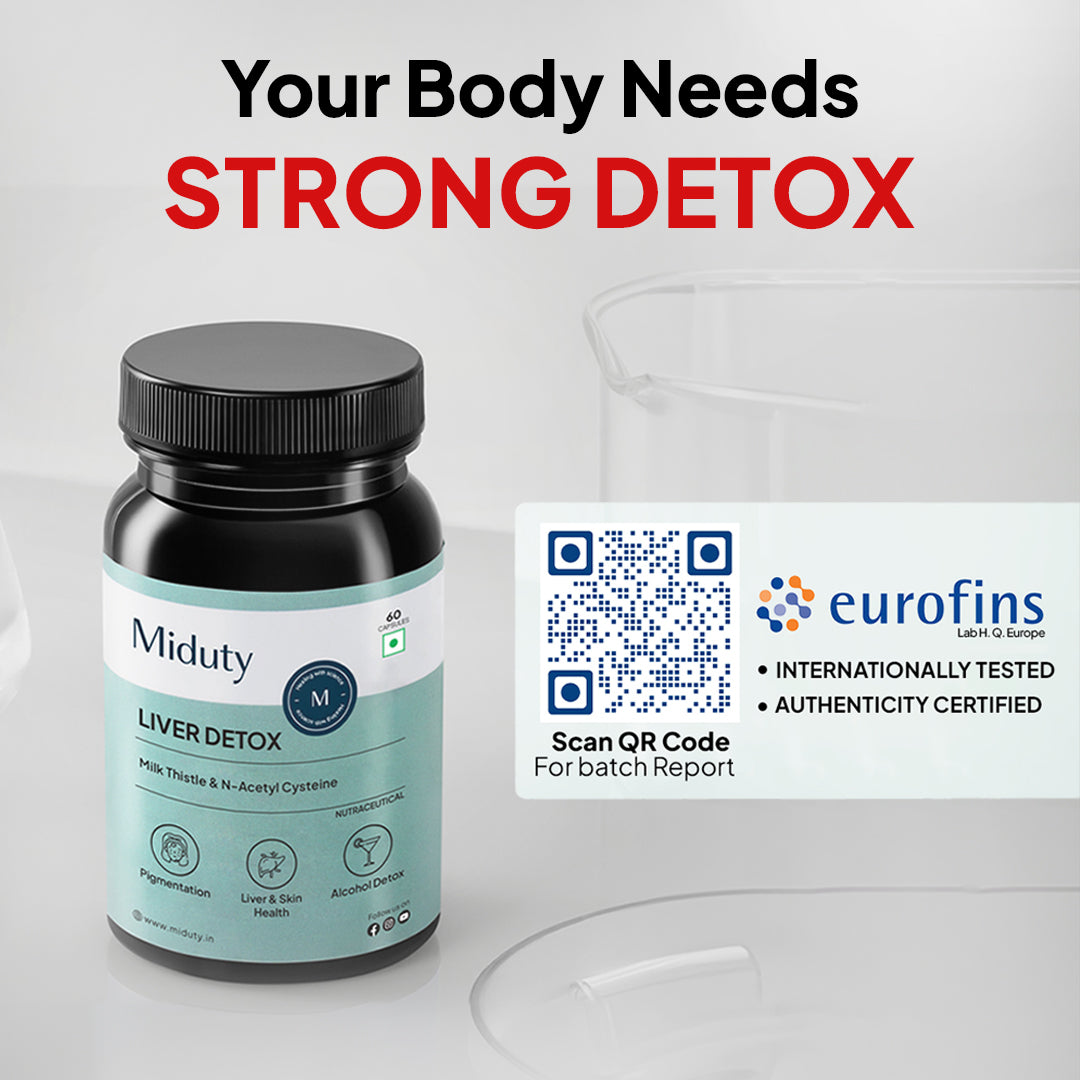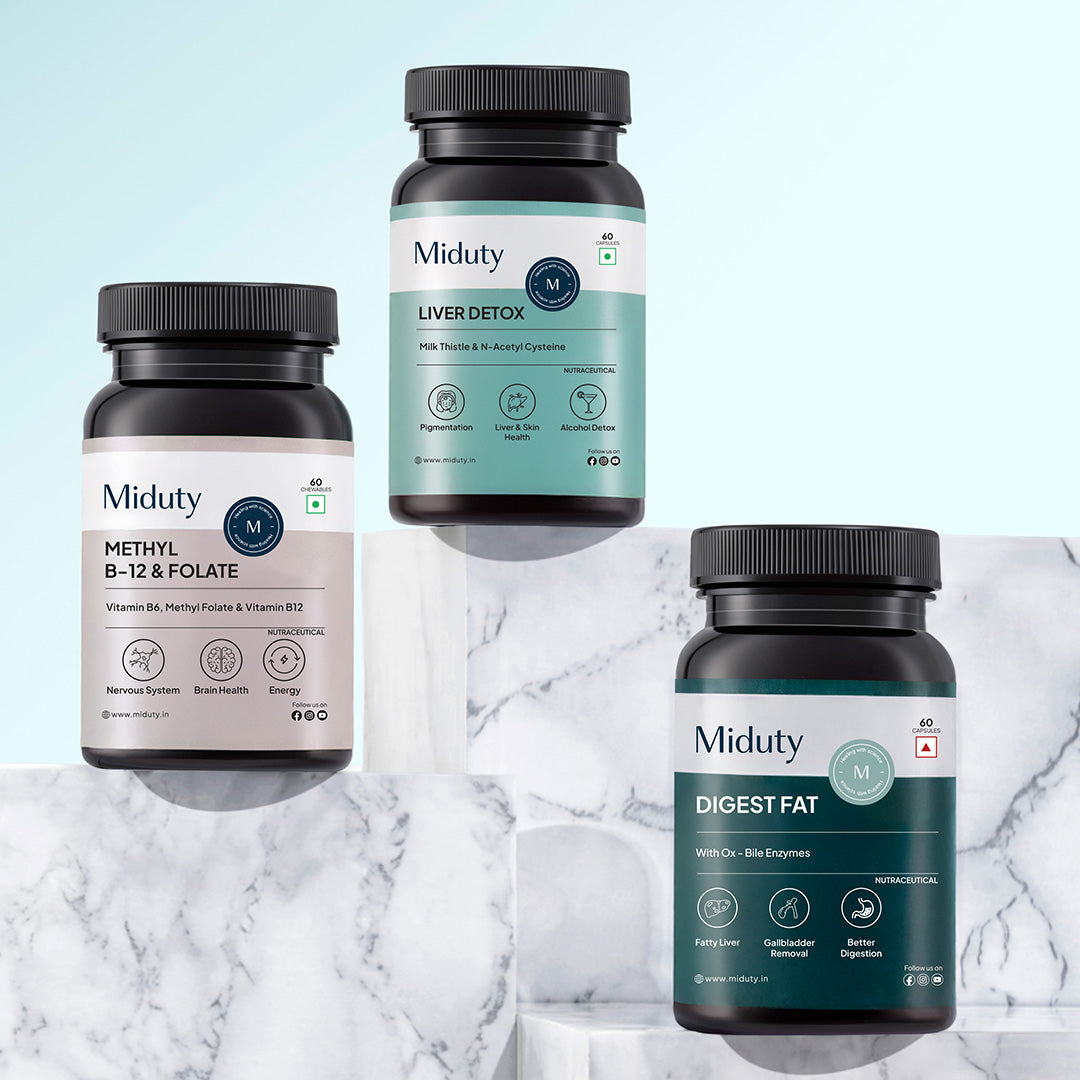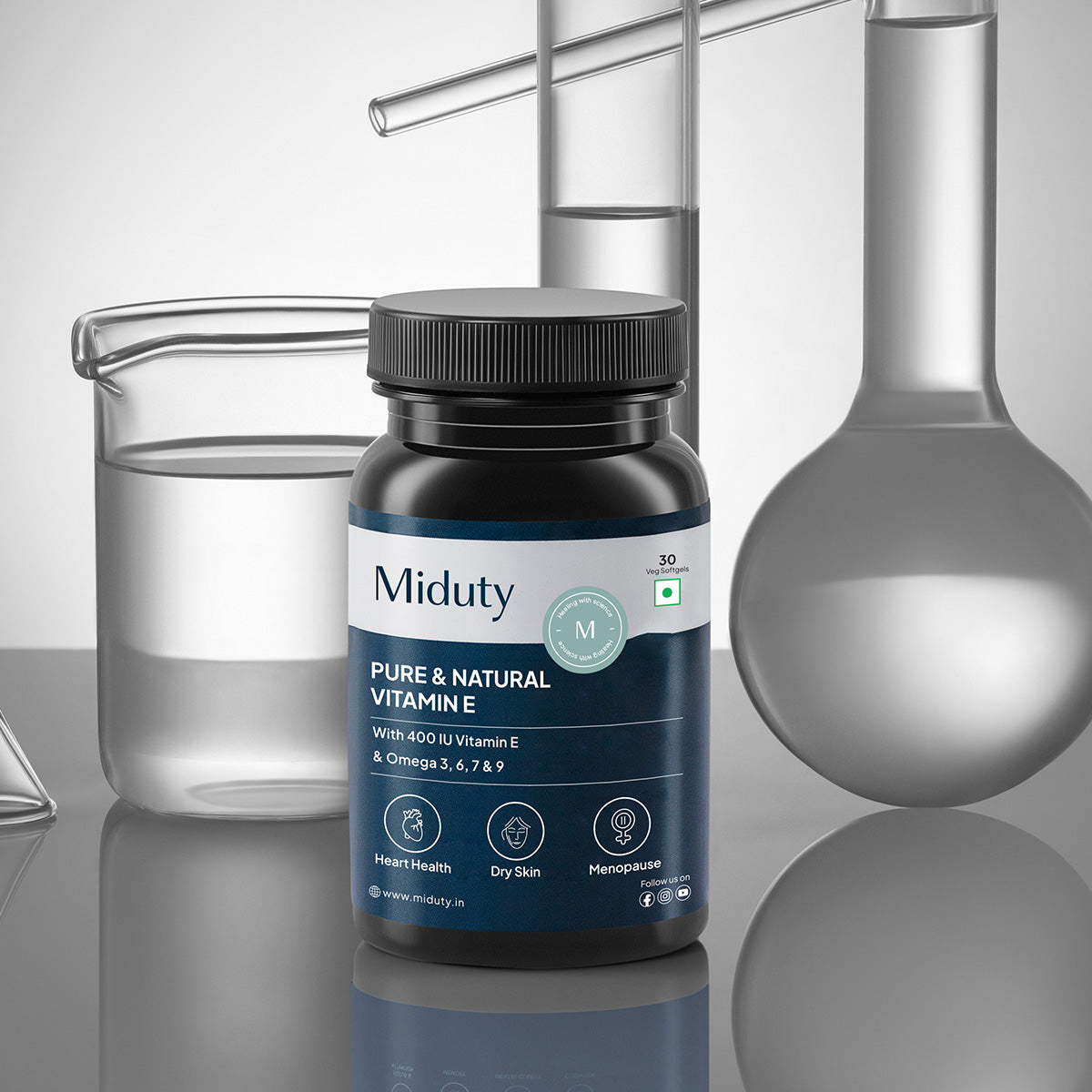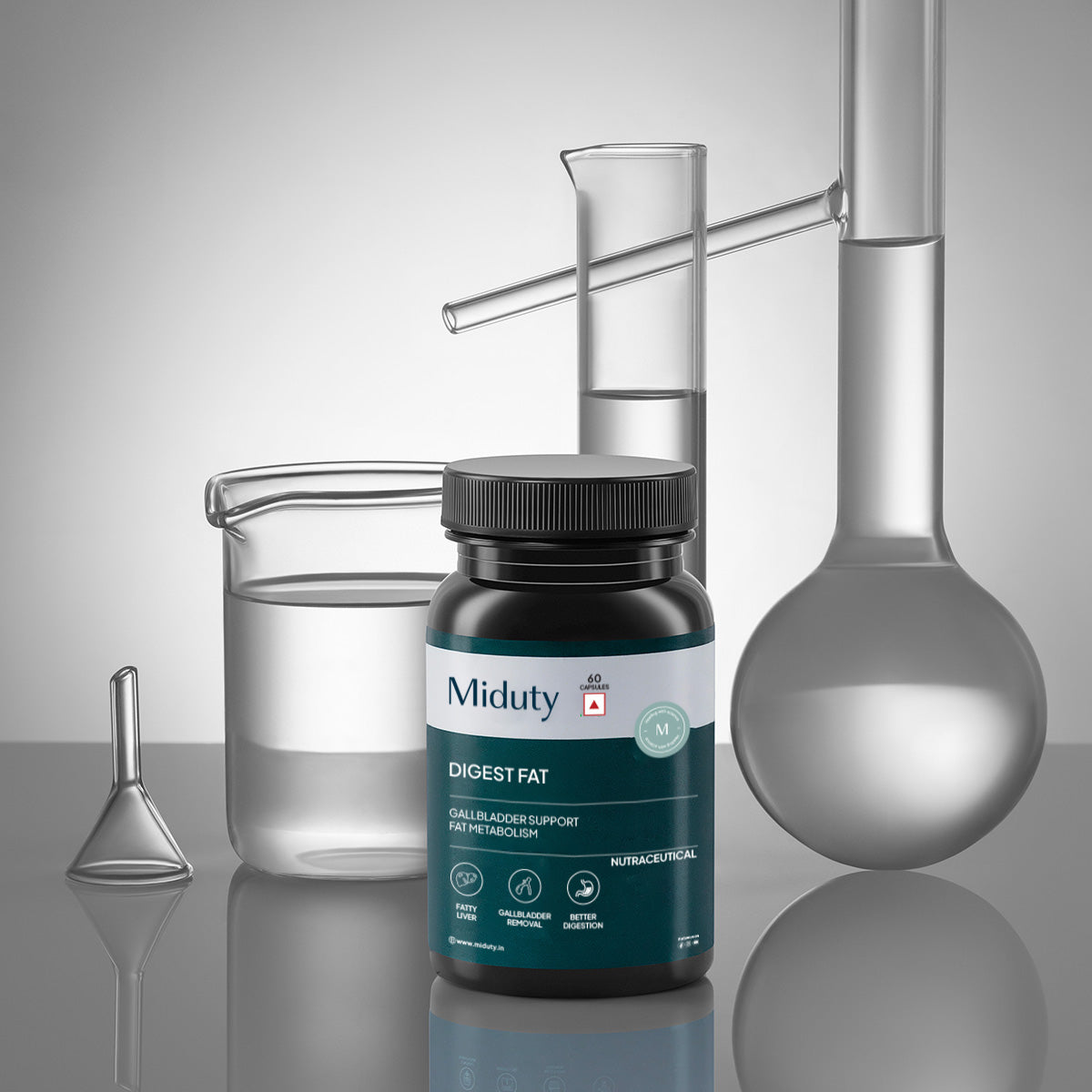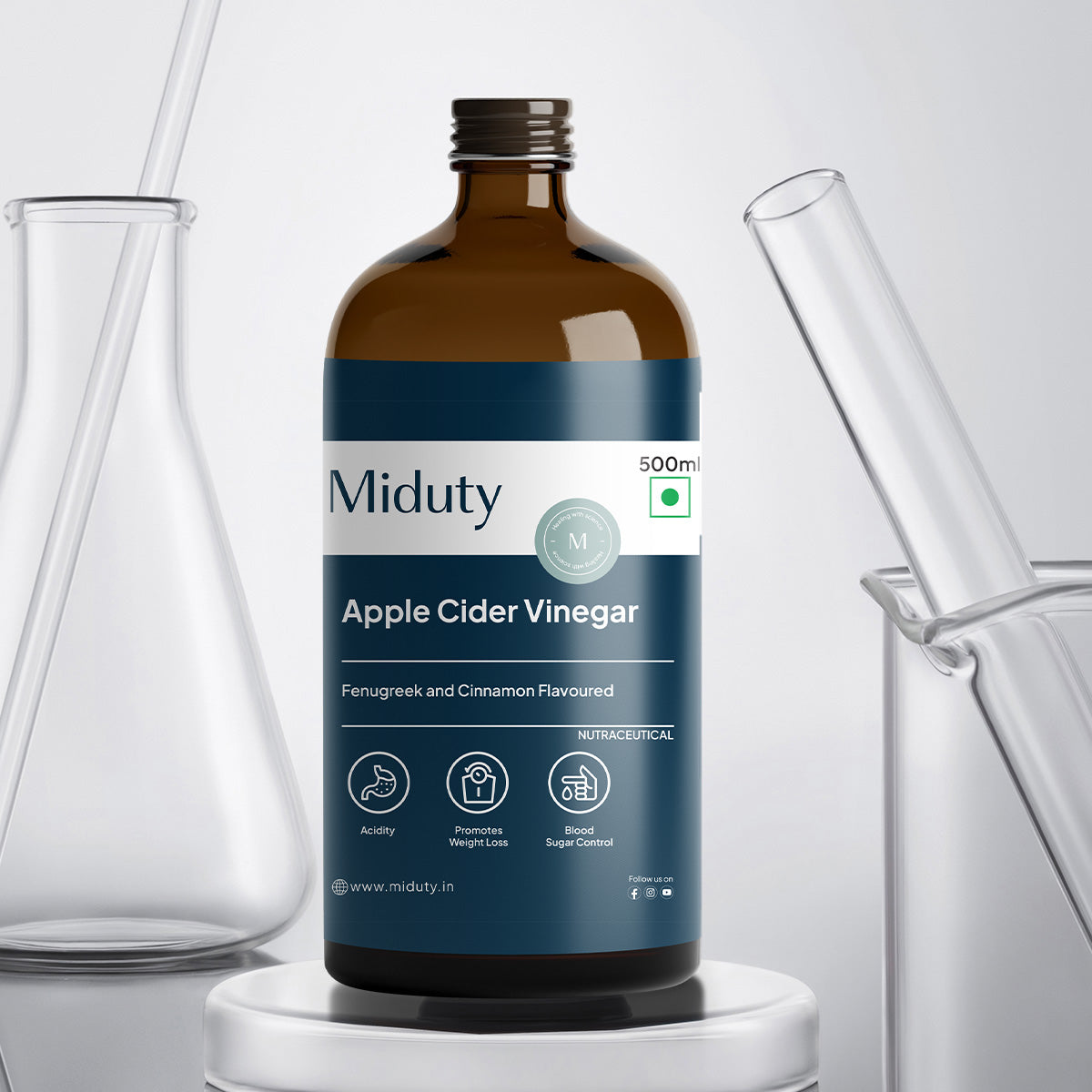
Managing Nonalcoholic Fatty Liver Disease: Science-Backed Treatment and Tips
Key Takeaways
1. Rising Concern: Nonalcoholic Fatty Liver Disease (NAFLD) is increasingly common, affecting up to 32% of people in India, particularly those in urban areas and children exposed to sugary, processed foods.
2. Silent Symptoms: NAFLD often shows no symptoms early on, but potential signs include persistent fatigue, abdominal pain, unexplained weight loss, and jaundice.
3. Diet Matters: Cutting down on sugary snacks, processed foods, and incorporating olive oil can help manage NAFLD. Intermittent fasting may also aid in reducing liver fat and improving overall liver health.
4. Effective Supplements: Supplements like milk thistle, N-acetylcysteine (NAC), and omega-3 fatty acids offer promising support for reducing liver inflammation and enhancing liver function.
5. Proactive Management: Early intervention with dietary adjustments, lifestyle changes, and appropriate supplements can significantly improve liver health and mitigate the impacts of NAFLD.
NAFLD has been steadily rising, affecting approximately 9-32% of the population in India, with higher rates observed in urban areas. Among children aged 0-17 years in India, NAFLD is particularly prevalent due to the consumption of sugary, fructose-rich candies, beverages, and processed foods.
Risk factors for NAFLD in India include obesity, insulin resistance, type 2 diabetes, high cholesterol, and lack of physical activity. Early detection is challenging as NAFLD often presents with no symptoms in its early stages.
Have you been experiencing persistent pain in your abdomen or noticing unexplained rashes on your skin? These symptoms could be signs of a deeper underlying condition known as Nonalcoholic Fatty Liver Disease (NAFLD).
You might be asking yourself, "What causes NAFLD? Is it something I could have prevented?" or "What can I do now to manage it effectively?"
You're not alone. NAFLD is becoming increasingly common worldwide, affecting millions of people who are just like you—seeking answers, looking for effective treatments, and wanting to live a healthier life.
The good news is that there's a lot of research out there that can help guide you through managing this condition.
In this blog, we're going to dive into the science-backed treatments and lifestyle changes that can make a real difference. Whether you're newly diagnosed or have been managing NAFLD for a while, this guide aims to provide you with actionable steps to take control of your liver health.
What is Non Alcoholic Fatty Liver Disease (NAFLD)?

Nonalcoholic Fatty Liver Disease (NAFLD) is a condition where fat builds up in your liver without being caused by alcohol. It's the most common liver problem around the world and is becoming more common in India too.
NAFLD can be mild, with just extra fat in the liver, or it can be more serious, leading to liver inflammation and damage, known as Nonalcoholic Steatohepatitis (NASH). In severe cases, it can cause scarring of the liver (fibrosis) or even liver failure.
What are the Non Alcoholic Fatty Liver Symptoms?
NAFLD is often called a "silent disease" because many people don't have any symptoms. But when symptoms do show up, they might include:
1. Feeling Very Tired: You might feel unusually tired or weak.
2. Discomfort or Pain in the Upper Right Side of Your Belly: This can be a sign of liver inflammation or enlargement.
3. Unexplained Weight Loss: Losing weight without trying, especially in more severe cases.
4. Yellowing of the Skin and Eyes (Jaundice): In severe cases, indicating liver damage.
What are the Science Backed Treatments and Tips for NAFLD?

You might be wondering what you can do to manage Nonalcoholic Fatty Liver Disease (NAFLD) and improve your liver health. The good news is that several science-backed treatments and lifestyle changes can make a significant difference. Let's discuss these strategies:
1. Reduce Sugar Intake: High sugar consumption, especially from sugary drinks and sweets, contributes to liver fat. This includes sodas, fruit juices, candies, cakes, cookies, and ice cream. Cutting back on these added sugars and opting for natural sugars found in fruits can make a big difference in managing NAFLD. According to the research, excessive sugar consumption, especially from sources like sugary beverages and processed foods, can lead to increased liver fat accumulation. [1] Fructose, a component of table sugar (sucrose) and high-fructose corn syrup, is particularly concerning as it can overwhelm the liver's capacity to metabolize it, leading to the formation of fat droplets within liver cells.
2. Avoid Processed Foods: Processed foods often contain unhealthy fats, sugars, and additives that can worsen liver health. This includes foods like pizza, burgers, hot dogs, sausages, packaged snacks, and instant noodles. Instead, choose whole, unprocessed foods like cruciferous vegetables, whole grains, and lean proteins like eggs, greek yogurt. Processed foods often contain high levels of added sugars, unhealthy fats, and refined carbohydrates which can elevate blood sugar levels, all of which can contribute to liver fat accumulation and inflammation, worsening NAFLD. [2]
3. Add Olive Oil in Your Diet: Olive oil to your diet can help with Non-Alcoholic Fatty Liver Disease (NAFLD) because it contains healthy fats that are good for the liver. These fats, called monounsaturated fats, can reduce the amount of fat in the liver and improve liver function. Olive oil also has natural substances that fight inflammation and act like antioxidants, which protect the liver from damage. According to a study, olive oil in your diet can help improve liver health and reduce the effects of NAFLD. [3]
Note: Make sure you don't use olive oil for cooking as it has a low smoking point and can do more harm than benefit. The correct way to use olive oil is to sprinkle it on your salads.
4. Start Intermittent Fasting: Intermittent fasting (IF) shows promise in helping with Non-Alcoholic Fatty Liver Disease (NAFLD) by potentially reducing liver fat and improving insulin sensitivity. Intermittent Fasting involves cycling between periods of eating and fasting, which can help regulate blood sugar levels and reduce overall calorie intake. Studies suggest that Intermittent Fasting may improve liver enzyme levels and decrease liver fat content, which are key indicators of NAFLD severity. [4]
5. Liver Friendly Supplements: Liver-friendly supplements like milk thistle, N-acetylcysteine (NAC), and omega-3 fatty acids can potentially benefit individuals with Non-Alcoholic Fatty Liver Disease (NAFLD) by supporting liver function and reducing inflammation: Milk Thistle (Silymarin): Milk thistle is known for its antioxidant and anti-inflammatory properties. It may help protect liver cells from damage and promote regeneration. Studies suggest that milk thistle extract, particularly silymarin, could reduce liver enzyme levels and liver fat content in NAFLD patients. [5] N-acetylcysteine (NAC): NAC is a precursor to glutathione, a powerful antioxidant that helps neutralize free radicals and reduce oxidative stress in the liver. Research indicates that NAC supplementation may improve liver function and reduce liver fat accumulation in individuals with NAFLD. [6]]
6. Omega-3 Fatty Acids: Omega-3 fatty acids, found in fish oil supplements and fatty fish like salmon, have anti-inflammatory properties that can benefit liver health. They may help reduce liver fat and improve liver enzyme levels. Studies have shown that omega-3 supplementation can decrease liver fat content and inflammation in NAFLD patients. [7]
How to Choose the Best Supplement for NAFLD?
When selecting a supplement for Non-Alcoholic Fatty Liver Disease (NAFLD), it's essential to choose one that targets liver health effectively. A supplement combining milk thistle with N-acetylcysteine (NAC) can be particularly potent due to their synergistic effects in reducing liver inflammation and supporting detoxification processes.
Liver Detox is an example of such a supplement that combines both NAC and Milk Thistle, offering a comprehensive approach to supporting liver function in people with NAFLD.
Additionally, it also contains beetroot and dandelion extracts, both of which are known to improve liver function. Always consult with a healthcare provider before starting any new supplement regimen to ensure it is suitable for your specific health needs and conditions.
Conclusion
If you or someone you know is grappling with Nonalcoholic Fatty Liver Disease (NAFLD), understanding its causes and effective management strategies is crucial. This blog explores science-backed treatments and lifestyle changes that can significantly improve liver health.
From reducing sugar and processed foods to incorporating olive oil and exploring intermittent fasting, there are actionable steps to take control of NAFLD. Additionally, liver-friendly supplements like milk thistle, N-acetylcysteine (NAC), and omega-3 fatty acids offer further support in reducing liver inflammation and promoting detoxification.
Frequently Asked Questions (FAQs)
Q1 - Can NAFLD be reversed?
Yes, NAFLD can often be managed and potentially reversed through lifestyle changes. Weight loss, a healthy diet, regular exercise, and controlling underlying conditions like diabetes and high cholesterol are crucial for managing NAFLD.
Q2- Can NAFLD lead to liver cancer?
NAFLD itself does not directly cause liver cancer, but chronic inflammation and liver damage from advanced stages like NASH and cirrhosis increase the risk of liver cancer.
Q3 - Can NAFLD affect children and teenagers?
Yes, NAFLD can affect children and teenagers, especially with rising rates of obesity in this age group. Early detection and intervention are important to prevent progression and related health issues.
Q4 - Can medications or supplements help manage NAFLD?
While there are no specific medications approved for NAFLD, managing underlying conditions with prescribed medications can be beneficial. Some supplements, like vitamin E and omega-3 fatty acids, may have benefits for liver health, but always consult with a healthcare provider before starting any new supplements.
References
|
Sr. No. |
Reference Links |
| 1. | |
| 2. | |
| 3. | |
| 4. | |
| 5. |
Silymarin as Supportive Treatment in Liver Diseases: A Narrative Review |
| 6. | |
| 7. |


